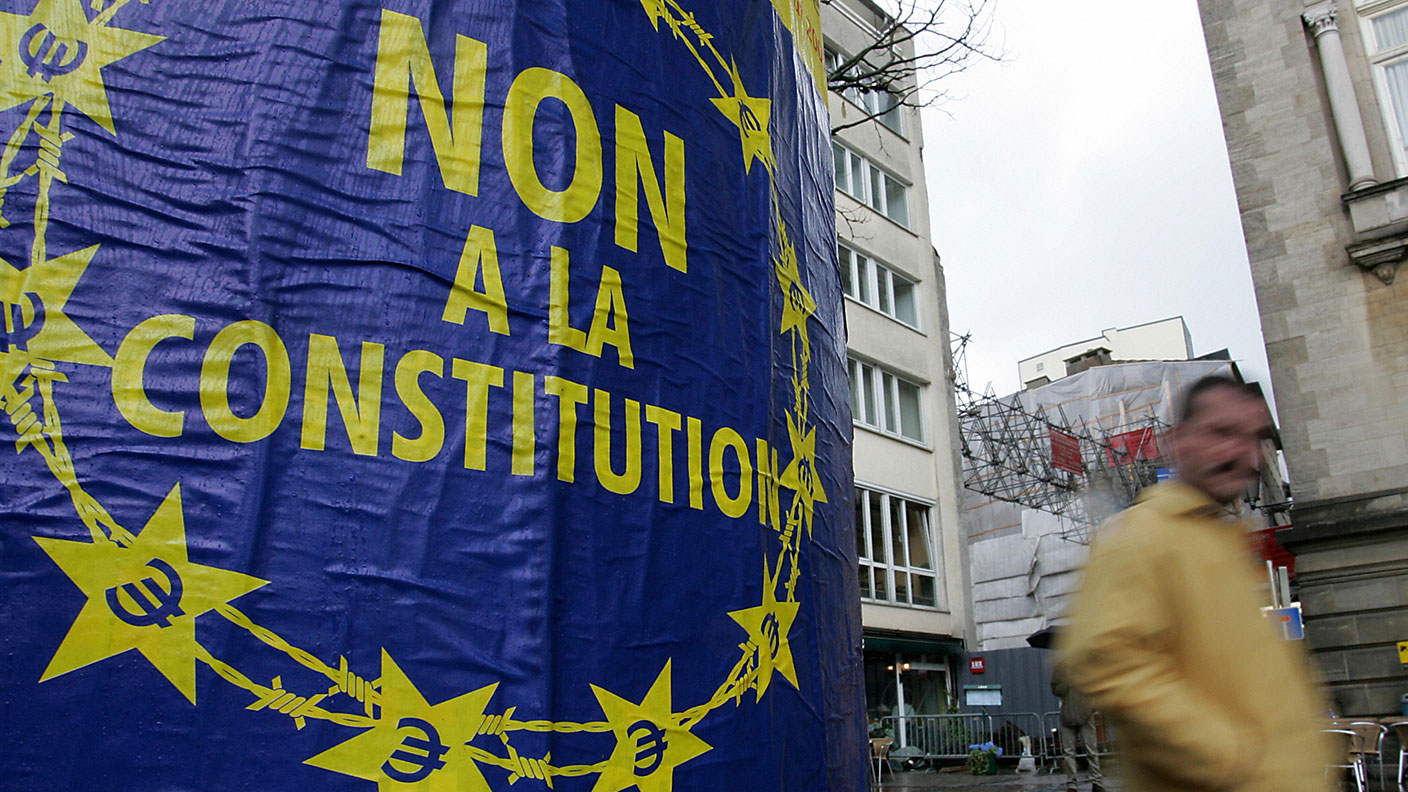29 October 2004: The ill-fated European Constitution is signed in Rome
On this day in 2004, the European Constitution was signed in Rome, only for it to be torpedoed by the French and Dutch public further down the line.


Get the latest financial news, insights and expert analysis from our award-winning MoneyWeek team, to help you understand what really matters when it comes to your finances.
You are now subscribed
Your newsletter sign-up was successful
Want to add more newsletters?

Twice daily
MoneyWeek
Get the latest financial news, insights and expert analysis from our award-winning MoneyWeek team, to help you understand what really matters when it comes to your finances.

Four times a week
Look After My Bills
Sign up to our free money-saving newsletter, filled with the latest news and expert advice to help you find the best tips and deals for managing your bills. Start saving today!
In its own peculiar Euro-babble, the European Union described the proposed Constitution as representing "the completion of a long process of integration marked by ever closer integration and by the successive enlargements of the Union". What it was trying to say was that since the birth of the European Coal and Steel Community in 1952, there had been so many treaties and new countries joining, it was time to bring all the ends together in a nice, neat and tidy European Constitution, along with a few changes.
First and foremost, there was to be a new head honcho: the President of the European Council. Until then, the presidency had simply been passed around the existing members in six-month stints, each pushing their own agenda. So, it was hard to get anything done. At his or her side would be the new and grandly titled High Representative for the Common Foreign and Security Policy. Other areas covered by the Constitution included which powers were to be held at the European level, where and how the EU would be involved on things such as immigration and law, decision-making in the Union, and reform of the law-making body, the European Commission.
On 29 October 2004, the delegates of the 25 member states swept into Rome and signed the hallowed document. But the Constitution still had to be ratified 25 times for it to become law, and that's when things went wrong. It had all started off so well. Lithuania approved it, as did Hungary and Slovenia. A host of other countries said yes. Then it got to the French, who in a referendum the following May, went and ruined it all. They said "Non!"
MoneyWeek
Subscribe to MoneyWeek today and get your first six magazine issues absolutely FREE

Sign up to Money Morning
Don't miss the latest investment and personal finances news, market analysis, plus money-saving tips with our free twice-daily newsletter
Don't miss the latest investment and personal finances news, market analysis, plus money-saving tips with our free twice-daily newsletter
That was it – back to the drawing board. The EU declared a "period of reflection" while it worked out what to do next. Meanwhile, most of the other countries, Britain included, that had scheduled referendums cancelled them, sparing themselves a potentially embarrassing defeat. Much better it was to let the French (and shortly afterwards, the Dutch) shoulder the blame. But the European Constitution wasn't done yet. It was fished out of the bin, remodelled, rehashed and rebranded as the Lisbon Treaty, coming into force in December 2009.
Interestingly as far as Britain's upcoming EU referendum is concerned, the Constitution did include a section outlining for the first time a procedure for what would happen if a member state decided to leave: "the Union shall negotiate and conclude an agreement with that State, setting out the arrangements for its withdrawal, taking account of the framework for its future relationship with the Union. That agreement shall be negotiated in accordance with Article III-325(3). It shall be concluded by the Council, acting by a qualified majority, after obtaining the consent of the European Parliament."
Having to "agree terms", noted the BBC in 2004, "implied [a] threat that it would not be that easy. This clause is presumably designed never to be used."
Get the latest financial news, insights and expert analysis from our award-winning MoneyWeek team, to help you understand what really matters when it comes to your finances.

-
 Should you buy an active ETF?
Should you buy an active ETF?ETFs are often mischaracterised as passive products, but they can be a convenient way to add active management to your portfolio
-
 Power up your pension before 5 April – easy ways to save before the tax year end
Power up your pension before 5 April – easy ways to save before the tax year endWith the end of the tax year looming, pension savers currently have a window to review and maximise what’s going into their retirement funds – we look at how